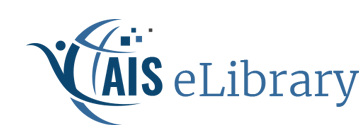3/2024
The latest issue is out now
New The articles of the latest issue are already available for download. In this issue, readers will find important contributions on information systems management, software quality, adoption of information technology, and project management education.
01/2024
IJISPM's acceptance rate
The journal's acceptance rate for 2023 was 7%. Unfortunately, many submitted papers are desk rejected. So, we kindly ask the author/s to carefully review their articles before submission and strictly follow the journal's guidelines.

- Traction with fraction: strategic IS management in SMEs through fractional CIOs
Simon Kratzer, TU Dresden, Germany
Markus Westner, OTH Regensburg, Germany
Susanne Strahringer, TU Dresden, Germany- Small and medium-sized enterprises (SMEs) increasingly need to manage information technology (IT) effectively in order to remain competitive. However, compared to larger organizations, SMEs often face challenges in terms of resources and employer attractiveness, and regularly do not have the need to employ a Chief Information Officer (CIO) on a full-time basis. To address this issue, a growing number of global experts have begun to provide CIO services on a part-time basis for multiple clients simultaneously. This approach allows SMEs to tap into the expertise of experienced IT leaders at a fraction of the cost and without committing to long-term arrangements. While these professionals, known as “Fractional CIOs”, have proven their value in the field, there has been a lack of academic research on this emerging trend. Therefore, we carried out a comprehensive research project between 2020 and 2023, involving 62 Fractional CIOs from 10 countries. The research produced a definition, different types of engagements, and success factors for Fractional CIOs and their engagements. This paper summarizes these findings for a wider audience of academics and practitioners.
- Tools for monitoring software quality in information systems development and maintenance: five key challenges and a design proposal
Rolf-Helge Pfeiffer, IT University of Copenhagen, Denmark
Jon Aaen IT University of Copenhagen, Denmark- As software grows in size and complexity, organizations increasingly apply tools to automatically assess software quality of information systems during development and maintenance. Software quality assessment tools (SWQAT) promise fast and actionable insights into the technical state of software through various quality characteristics, such as maintainability, reliability, or security. These tools have been used to support a wide variety of IT project management decisions related to system development, contract negotiations, project terminations, and even settling legal disputes between suppliers and clients. However, despite their rising importance, questions regarding how they function and how reliable they are to support decision-making have so far escaped scholarly attention. This paper conducts an evaluation of widely used SWQATs and analyzes how they rate the quality of software systems of varying sizes, functionalities, and programming languages. Our results reveal five key challenges for using SWQATs in IT projects. To address these challenges, we propose a design for tailorable SWQATs that allows for more conscious and prudent software quality assessments that better reflect the socio-technical aspect of software systems and the context-specific nature of software quality.
- Problems and solutions in adopting information and communication technology in micro and small enterprises
Daniel de Vargas, Federal University of Santa Maria, Brazil
Lisandra Manzoni Fontoura, Federal University of Santa Maria, Brazil- Micro and small enterprises (MSEs) are predominant worldwide and responsible for the greater employability of citizens, income generation, and production. However, they face resource constraints and rely on information and communication technology to remain competitive, which often causes many problems during or after the adoption process. Knowing the problems that affect micro and small enterprises and the solutions adopted may help other companies face the same issues In this work, based on a systematic literature review (SLR), we identified and analyzed the problems that occurred during or after the implementation of information and communication technologies in micro and small enterprises and what actions were taken to solve them. We sought to understand the behavior of problems and solutions in the last 21 years and the factors that influenced them. We performed an SLR using the snowballing technique, retrieving 12,936 articles in eight iterations, and selecting and analyzing 105 papers. As a result, we identified 129 problems, divided into 12 categories, and 48 solutions. Such an analysis is advantageous for academia, governments, and business managers, as it allows one to understand problems in advance and formulate more efficient policies, plans, and projects for these enterprises.
- Metaverse adoption for the teaching and learning of project management: an exploratory study of student use
Alanah Mitchell, Drake University, USA- The rapid adoption of collaboration technologies over the course of the COVID-19 pandemic, combined with the advancement, growth, and proliferation of metaverse technology capabilities, has created a heightened awareness and comfort with the use of advanced collaboration technologies for online and distance education. This paper presents an exploratory study of how metaverse technologies can be adopted for the teaching and learning of project management concepts and skills specifically, as metaverses have been identified as a legitimate tool for the support of virtual projects. As a part of this work, a task was designed and adopted in an undergraduate project management course. Study results related to the teaching and learning of project management as well as student perceptions of metaverse technology adoption show that students were able to work together in a metaverse environment and collaborate with one another to achieve group consensus on a task. Ultimately, the findings from this case can guide future adoptions of metaverse technologies both in and out of the classroom.
Current issue








